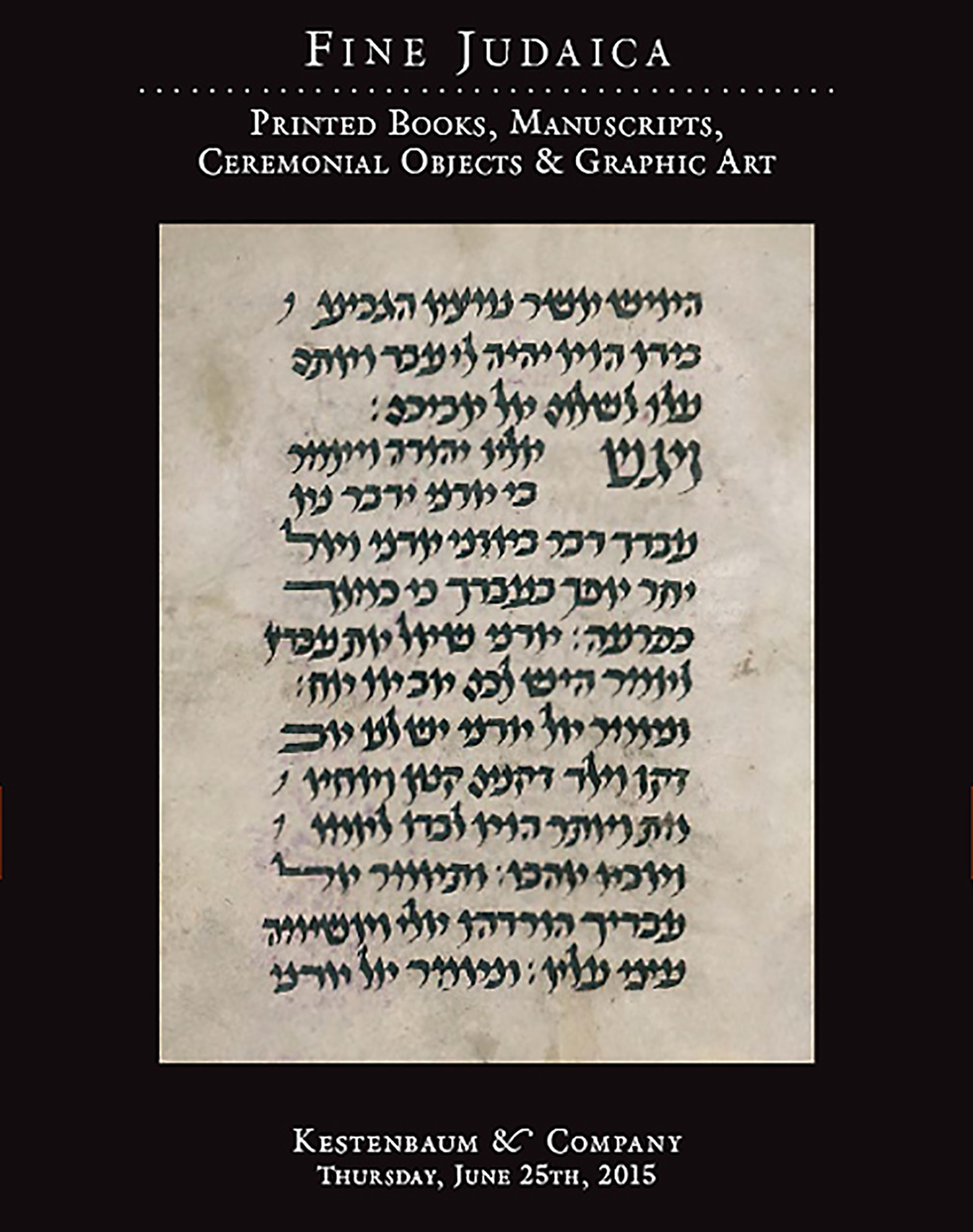Derech Emunah [“The Path of Faith”]

AUCTION 65 |
Thursday, June 25th,
2015 at 1:00
Fine Judaica: Printed Books, Manuscripts, Ceremonial Objects and Graphic Art
Lot 73
BIBAGO, ABRAHAM BEN SHEM-TOV.
Derech Emunah [“The Path of Faith”]
Constantinople: n.p. 1521
Est: $5,000 - $7,000
<<Rare. >> The Spanish rationalist philosopher, Abraham Bibago was born in the province of Aragon and resided in Huesca and Saragossa. He likely died just prior to the Expulsion of Jews from Spain. According to Isaac Arama, Bibago was “one of the most important scholars and philosophers of our people” (Akeidath Yitzchak, gate 80).
“As the title suggests, Derech Emunah is a presentation and, at the same time, a defense of the Jewish religion as leading man to the highest knowledge of God and to eternal happiness. It is divided into three treatises, which are sub-divided into divisions or parts (called “gates”) and chapters. The first treatise deals with: (gate 1) the doings of God; (gate 2) His knowledge; and (gate 3) His providence. The second treatise deals with: (gate 1) the intellect; (gate 2) its nature and object; (gate 3) man’s highest object; (gate 4) the blending of faith and knowledge—which topic is but slightly touched; (gate 5) the problem of matter and sin; (gate 6) the question whether Moses sinned; and (gate 7) the true faith. The third treatise deals with: (gate 1) the fundamentals of faith; (gate 2) miracles; (gate 3) creation of the world; (gate 4) ethics; and (gate 5) the special articles of faith. In the fifth part he warmly defends the creed of Maimonides against his antagonists. In this work, in which many Biblical and rabbinical passages are explained, he takes cognizance of Christian and Mohammedan theology. He quotes Greek philosophers like Plato, Aristotle, and Pythagoras; also Euclid and Ptolemeus, Galen and Themistius, as well as Arabic thinkers like Averroes, Avicenna, Alfarabi, and Gazzali, and even the fable-book “Kalila we-Dimna.” Of Christian writers he quotes Eusebius; and of Jewish writers often not only Maimonides, Nachmanides, and other philosophers, but also many Kabbalistic works. He endorses a saying of a sage that “Reason and Religion are the world’s two luminaries” (JE).
See: A. Lazaroff, The Theology of Abraham Bibagio: A Defence of the Divine Will, Knowledge and Providence in Fifteenth Century Spanish-Jewish Philosophy (1981).
